The Tor Project has launched its own VPN – but it's not the finished product yet
The app is in Beta and only available for Android
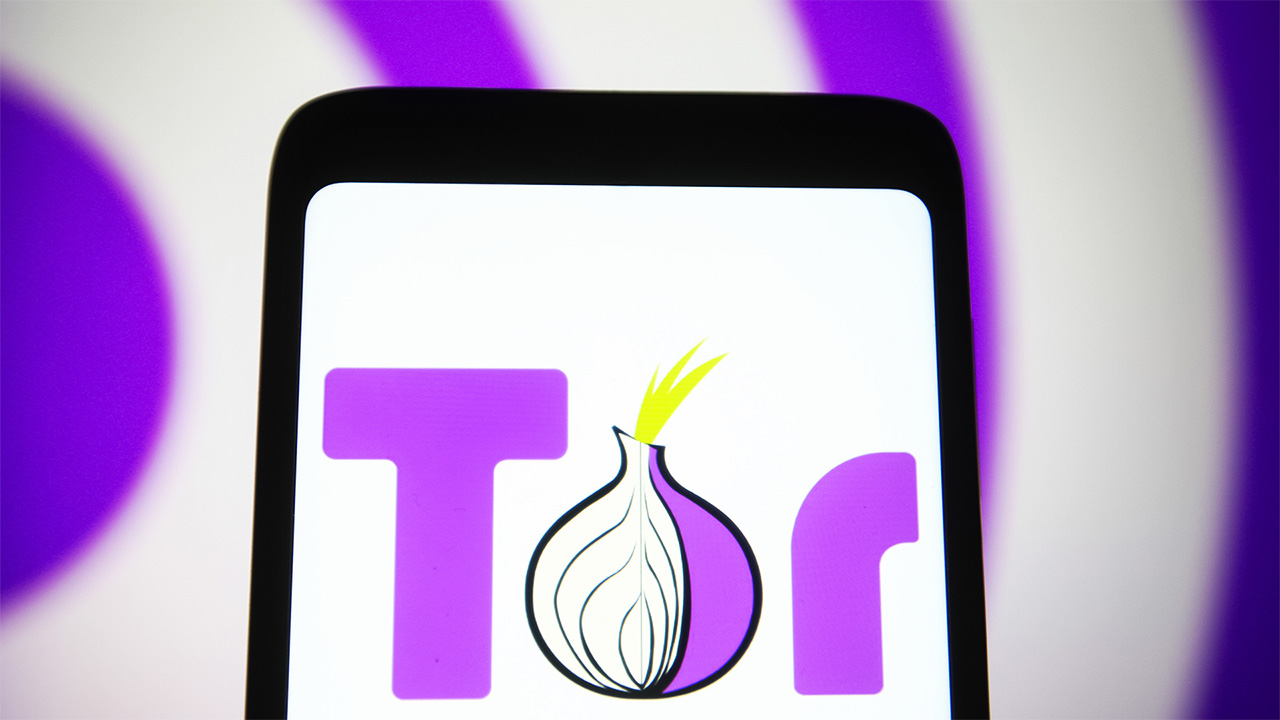
The Tor Project, famous for its anonymous, onion-based network, has launched its own VPN.
It has been released on the Google Play Store and is currently in beta. Right now, it can't match the best VPNs in terms of features, but the Android VPN app can send user's traffic through the Tor Network and has a focus on navigating censorship.
The app's description says early-adopters should expect bugs and it isn't yet ready for "high-risk" users.
The Tor Project has released an official VPN app that allows Android users to route all their traffic through the Tor network play.google.com/store/apps/d...
— @campuscodi.risky.biz (@campuscodi.risky.biz.bsky.social) 2025-09-11T15:31:49.440Z
An experimental VPN
The launch of this app marks the Tor Project's first steps into the world of VPNs. Tor VPN Beta is still in an "experimental" phase and its Play Store description says the app "is for users who want to help shape the future of mobile privacy."
Despite being in beta, there are some useful VPN features. Your IP address and location is hidden from the apps and services you use, as well as anyone monitoring your connection and traffic.
The Tor Project doesn't say what type of encryption it uses to protect your data – if any.
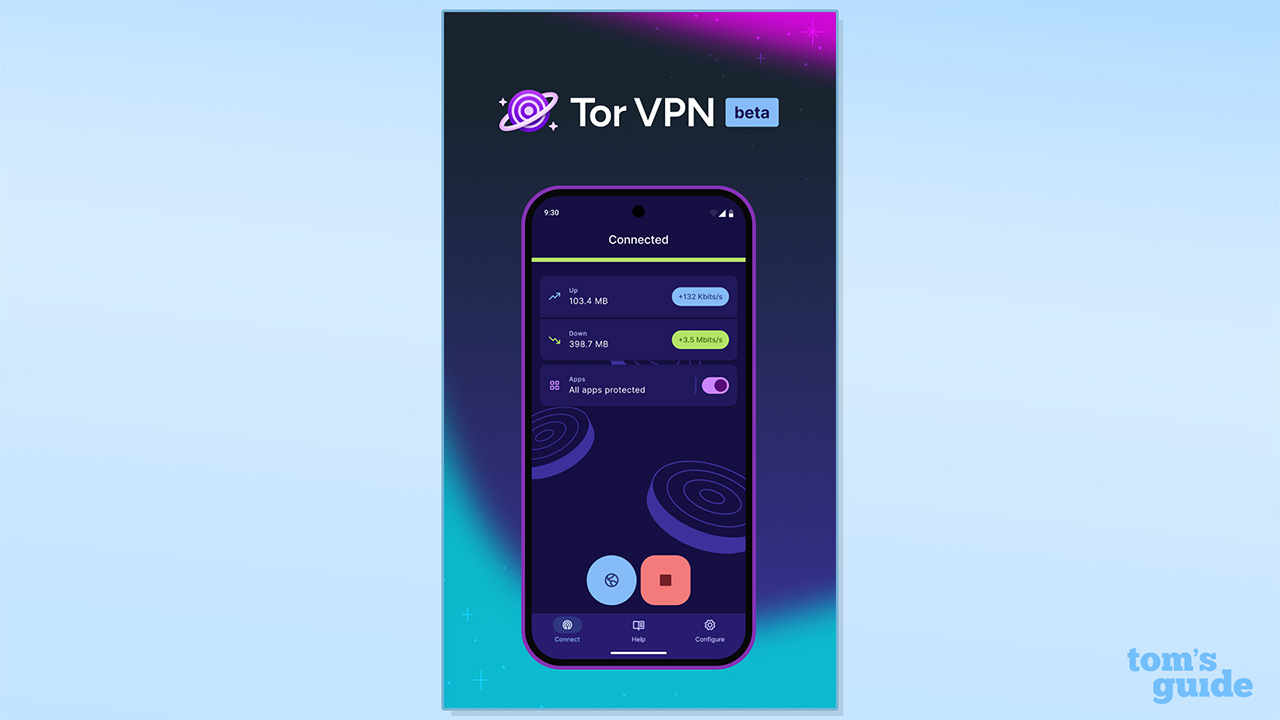
A form of split tunneling is available, where you can select which of your apps to route through the Tor Network. Tor says each app has its own "circuit and exit IP." This means your online activity is separated and no third-party can make connections between it.
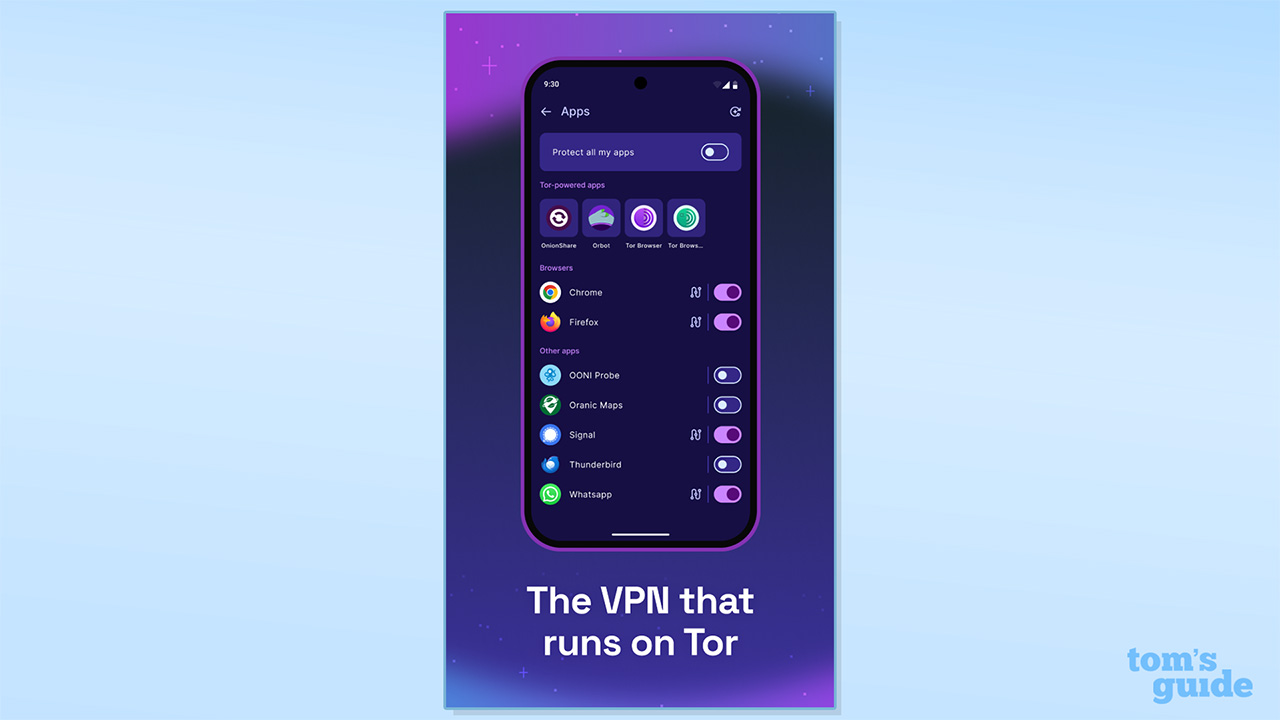
These circuits appear to run your traffic through five nodes, in the same way you'd access the Tor Network. Your data leaves an entry node, and passes through three nodes, and then connects to the internet via an exit node.
With the Tor Network, each node is operated by a volunteer and no one node can see the whole route of your internet traffic. An example VPN circuit is displayed, showing data travelling from Firefox to a node in France, then Germany, then Brazil, before connecting to the internet.
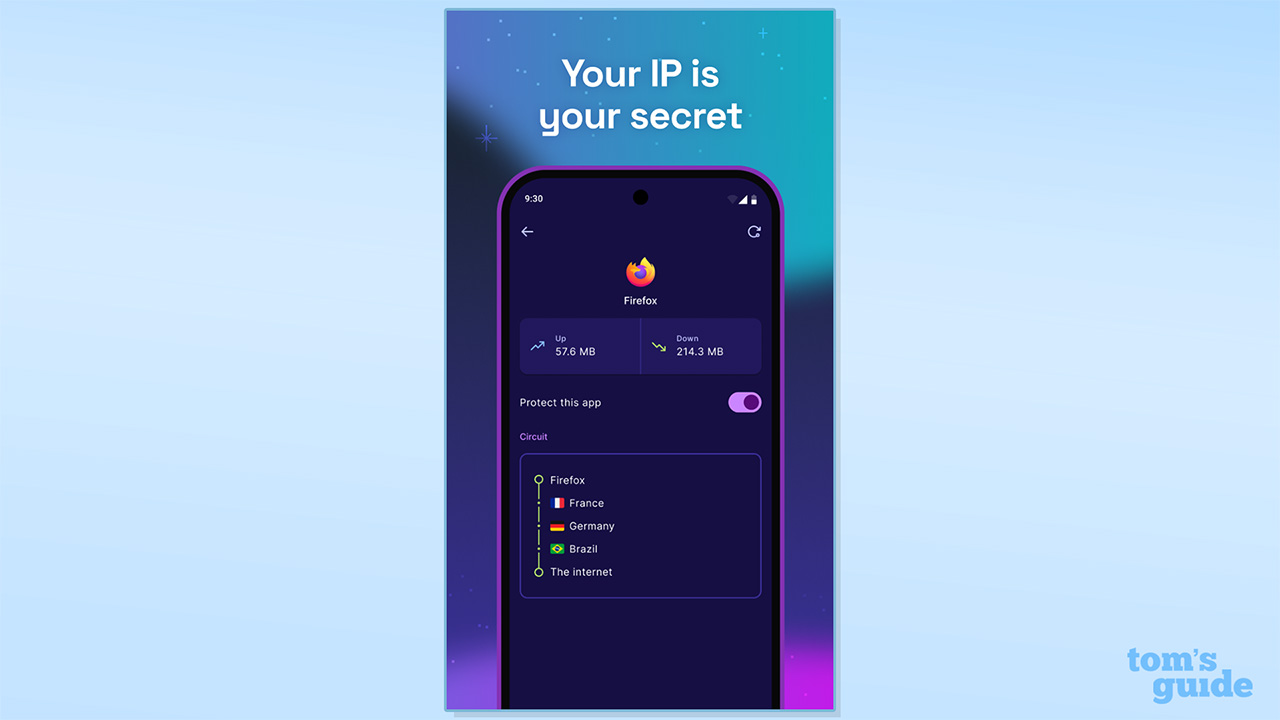
The beta uses what Tor calls "bridges" to enable continued access to the Tor Network in places where it's blocked.
There appear to be two bridges built into the app. The first, obfs4, disguises your traffic as random data. Snowflake is the second bridge and this disguises your traffic as a video call.
New bridges can be added and they can also be requested from the Tor Project.
Bridges are an effective way of navigating internet censorship and maintaining access to a free and open internet.
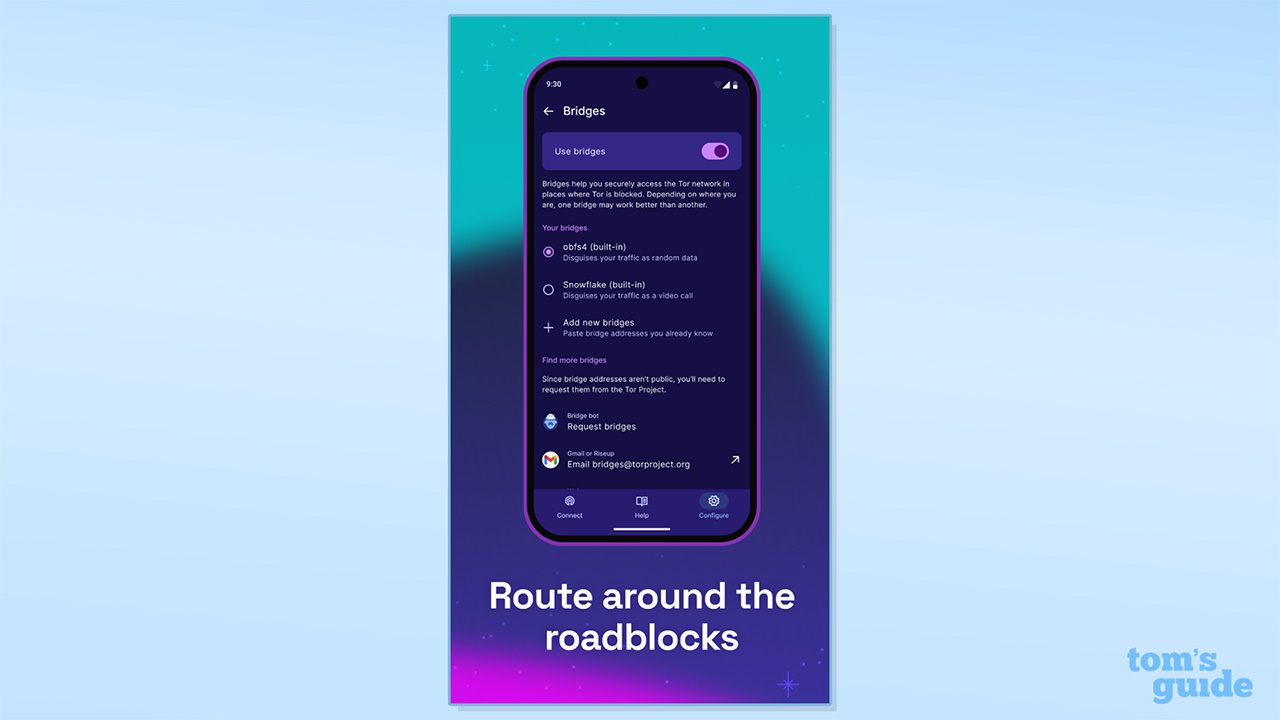
Tor VPN is built on Arti, "Tor's next-generation Rust implementation." The provider says Arti "means safer memory handling, modern code architecture, and a stronger security foundation than legacy C-Tor tools."
Expect limitations
The Tor Project makes it clear that this release is "intended for testing and feedback." It says the app is "not suitable for high-risk users or sensitive use-cases" but "is for early adopters who want to help shape mobile privacy and can do so safely."
You'll likely encounter bugs and the developers have encouraged users to report any findings to the team and share feedback. They called for testers to "bring the app to its limits."
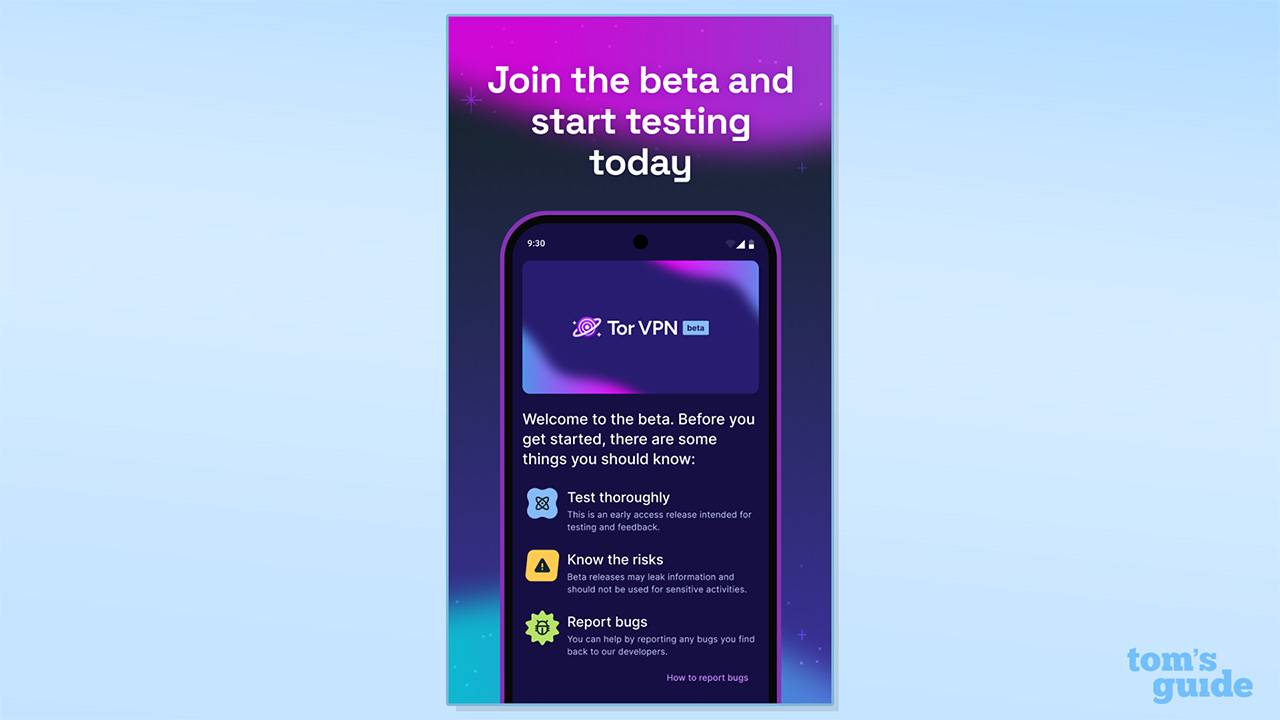
Beta testers can report any issues via the Tor VPN GitHub page, where the app's open source code is also visible. The page shows the app was first created on January 28, 2022, so has been in development for a number of years.
The Tor VPN Beta Google Play Store listing states no user data is collected and no data is shared with third-parties.
Despite this, the Tor Project warned the beta may still leak information and "some Android platform data can still identify your device." It says no VPN can completely prevent this and those facing "extreme surveillance risks" shouldn't access the beta.
The Tor VPN app is still in its infancy and we look forward to following its developments.
We test and review VPN services in the context of legal recreational uses. For example: 1. Accessing a service from another country (subject to the terms and conditions of that service). 2. Protecting your online security and strengthening your online privacy when abroad. We do not support or condone the illegal or malicious use of VPN services. Consuming pirated content that is paid-for is neither endorsed nor approved by Future Publishing.

George is a Staff Writer at Tom's Guide, covering VPN, privacy, and cybersecurity news. He is especially interested in digital rights and censorship, and its interplay with politics. Outside of work, George is passionate about music, Star Wars, and Karate.
You must confirm your public display name before commenting
Please logout and then login again, you will then be prompted to enter your display name.
 Club Benefits
Club Benefits





